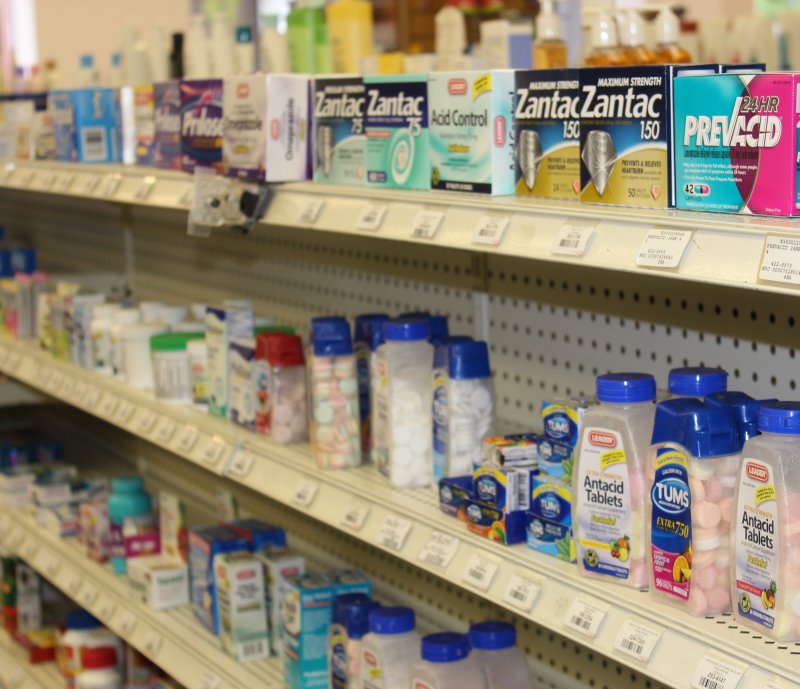1 of 2 | Researchers have linked proton pump inhibitors, or PPI drugs, to a higher risk of death by cardiovascular and chronic kidney disease, as well as upper gastrointestinal cancer. File Photo UPI/Billie Jean Shaw
May 30 (UPI) -- Heartburn, ulcer and acid reflux medicine may bring relief, but over time, they could also increase a person's risk of early death, new findings show.
Researchers have linked popular drugs like Prevacid, Prilosec, Nexium, Protonix and other proton pump inhibitors to a higher risk of death by cardiovascular and chronic kidney disease, as well as upper gastrointestinal cancer, according to a study published Thursday in The BMJ.
More than 15 million people are prescribed PPIs each year, while millions more purchase them over-the-counter, the researchers say.
"Taking PPIs over many months or years is not safe, and now we have a clearer picture of the health conditions associated with long-term PPI use," Ziyad Al-Aly, an assistant professor of medicine at the Washington University School of Medicine and study senior author, said in a news release.
The researchers looked at Department of Veterans Affairs medical data collected from July 2002 to June 2004 for nearly 158,000 patients. Just over 100,000 of the participants were white men over age 65 with new PPI prescriptions, and close to 57,000 had received new prescriptions for acid-suppressing drugs called H2 blockers. The patients were monitored for up to 10 years.
"Given the millions of people who take PPIs regularly, this translates into thousands of excess deaths every year," Al-Aly said. "Most alarming to me is that serious harm may be experienced by people who are on PPIs but may not need them. Overuse is not devoid of harm."
The study revealed that people taking PPIs saw a 17 percent increase in death risk versus those taking H2 blockers. The researchers found the death rate for PPI users was 387 per 1,000 people versus 342 per 1,000 for H2 blockers.
Among PPI-linked deaths, 15 per 1,000 PPI users died from heart disease, four out of 1,000 from chronic kidney disease and 2 out 1,000 from stomach cancer.
The study also revealed 80 percent of PPI users consumed low-dose amounts of the medication. This suggests people who take over-the-counter PPIs may have the same risk as prescription users.
In addition, more than half the people who used PPIs had no medical need to do so.
"PPIs sold over the counter should have a clearer warning about potential for significant health risks, as well as a clearer warning about the need to limit length of use, generally not to exceed 14 days," Al-Aly said. "People who feel the need to take over-the-counter PPIs longer than this need to see their doctors."
Other studies have linked PPIs to hip, spine and wrist fractures, with researchers on the new study calling for continued research on the health risks associated with PPIs.
"A lot of people may be taking PPIs unnecessarily," Al-Aly said. "These people may be exposed to potential harm when it is unlikely the drugs are benefiting their health. Our study suggests the need to avoid PPIs when not medically necessary. For those who have a medical need, PPI use should be limited to the lowest effective dose and shortest duration possible."















